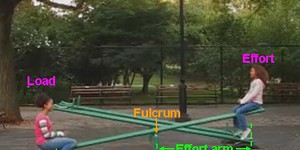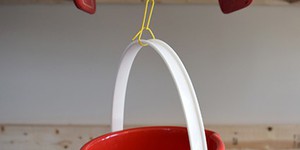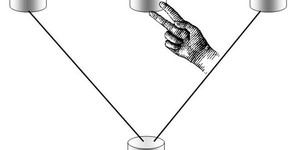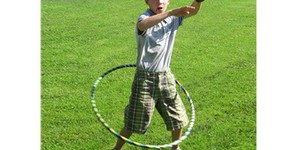Experiment with Dynamics Science Projects (42 results)
Explore dynamics, the physical forces that affect movement of objects. Change the dynamics of an object (maybe even one you build, like a marble roller coaster) to see if it slows down, speeds up, generates more power, flies higher, or more.
|
Did you know that you can lift an object that's heavier than you are? Just use a lever! In this science project you'll build a tabletop lever and measure how much effort it takes to lift an object using it.
Read more
Featured
Have you heard that garlic powder is supposed to inhibit the growth of bacteria? Which do you think would make a better disinfectant: a solution of garlic powder or a solution of bleach? This project shows you a straightforward way to compare the effectiveness of different disinfectants (or other antimicrobial agents), by measuring zones of inhibition on a culture plate.
Read more
How high can you throw different types of balls, like a golf ball, a basketball, and a football? Would one of them go higher than the others? Do factors like mass, shape, and volume influence the final height? You can measure the approximate maximum height a thrown ball reaches by measuring the time it spends in the air.
To do this project, you'll need at least one ball and a helper with a stopwatch. Your helper should start timing just as you release the ball, and stop right when the ball…
Read more
Hooke's law says that the opposing force of a spring is directly proportional to the amount by which the spring is stretched. How accurately Hooke's law describe the behavior of real springs? Can springs be used to make accurate scales for weighing objects? Spring into action and find out for yourself with this project.
Read more
Ever wonder why it is harder to keep your balance with a heavy backpack on? Or why it is difficult to
make a toddler's sippy cup tip over? Maybe you are the kind of person who wonders about circus balancing acts and would like to learn how to ride a bike on a rope. Or perhaps you want to know how to make your toy car less prone to toppling over when racing through a sharp curve. In this science project you can learn about balance using marshmallows, skewers, and toothpicks. Sticky, yummy…
Read more
Standing on a balcony near the top of the Tower of Pisa in Italy, a young scientist dropped two balls into the crowd below. The scientist, young Galileo, was not trying to knock his fellow professors on the head, but was trying to prove his theory that all objects fall to earth at the same rate, regardless of their mass. Was Galileo's theory correct? In this science project, you will get to test it out for yourself! Look out below!
Read more
There is a lot of energy that can be harvested from moving water. Energy can be extracted from water rushing over a waterfall and from the regular patterns of the ocean's tides. The energy that propels waves forward in the oceans can also be extracted and used. But can wave energy power plants be built anywhere there is water? In this energy science fair project, you will use ocean buoy data and mathematics to determine which locations along the coasts of the United States can sustain a wave…
Read more
"Ay Yaah!" echoes across the room while a loud "thud" signals a powerful kick striking the kick bag. Sound familiar? If the discipline, precision, and power of martial arts is your bag, try this project out for size. You won't be sparring with any opponent other than a swinging kick bag, but you'll learn a few powerful lessons about the physics of efficient kicking. No black belts required; just bring your best form and work up a little sweat while you use your feet to do fun science.
Read more
For example, think of hitting a baseball, heading a soccer ball into the net, or hitting a tennis ball with a racquet. Where the ball goes depends on...what? You can set up a simple model to start your investigation. You'll need a marble, a flat piece of wood, a flat piece of cardboard, a pencil, a ruler, a protractor, and a level surface. Lay down the cardboard down on a level surface and set up the flat piece of wood at one edge. The wood will act like a wall, and you're going to roll…
Read more
Practice makes you better at most things, and knowledge makes practice so much easier! Can you swirl a circular toy called a hula hoop around your waist or arm? Is it hard? What knowledge can you apply to find ways that make hula-hooping easier? Physics! Yes, physics will help you determine what makes one hula hoop a winner and another a flop. In this project, you will create your own hula hoops, spin them, and draw conclusions. The road will then be open to your becoming a hula hoop expert. If…
Read more
For this project, you'll use a baseball as a pendulum weight, studying the motion of the ball with and without spin. Wrap a rubber band around the ball, and tie a string to the rubber band. Fasten the string so that the ball hangs down and can swing freely. Mark a regular grid on cardboard, and place it directly beneath the ball to measure the motion. You can also time the oscillations with a stopwatch. Lift the ball along one of the grid axes, and let it go. Observe the motion and record…
Read more
|
Explore Our Science Videos
Build a Submarine -STEM activity
4 Easy Robot Science Projects for Kids
Build a K'Nex® Differential











